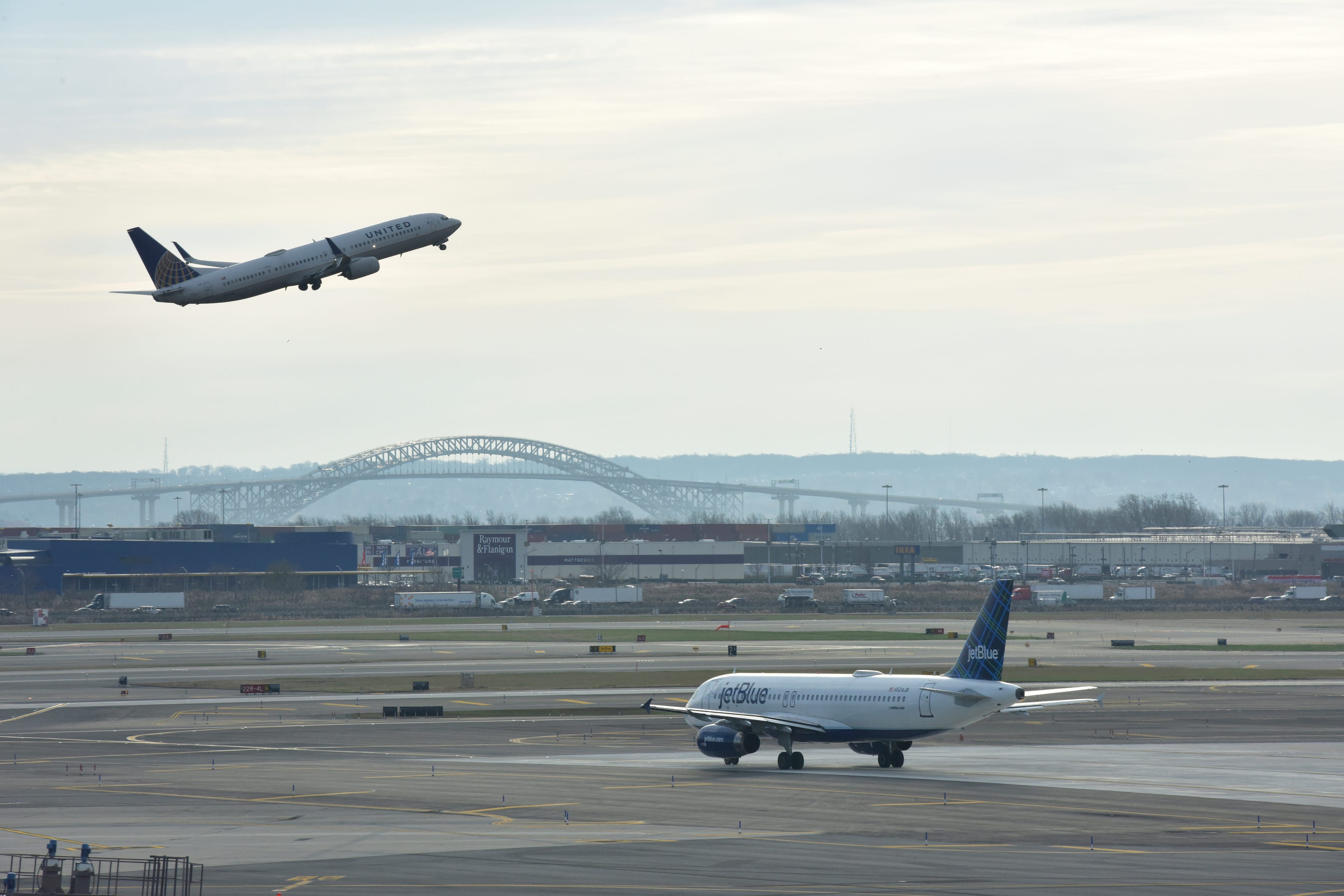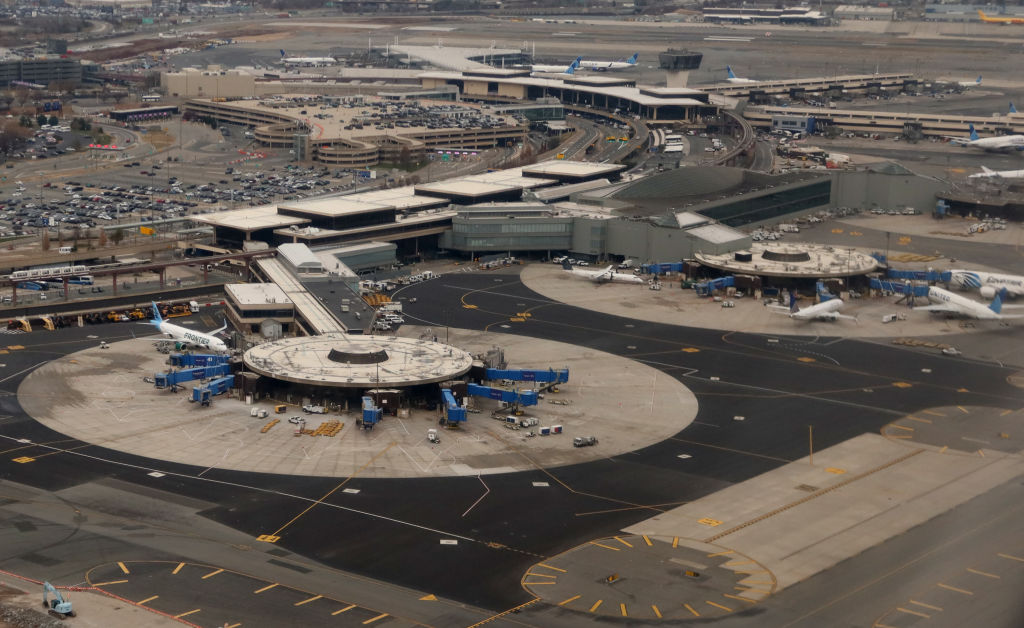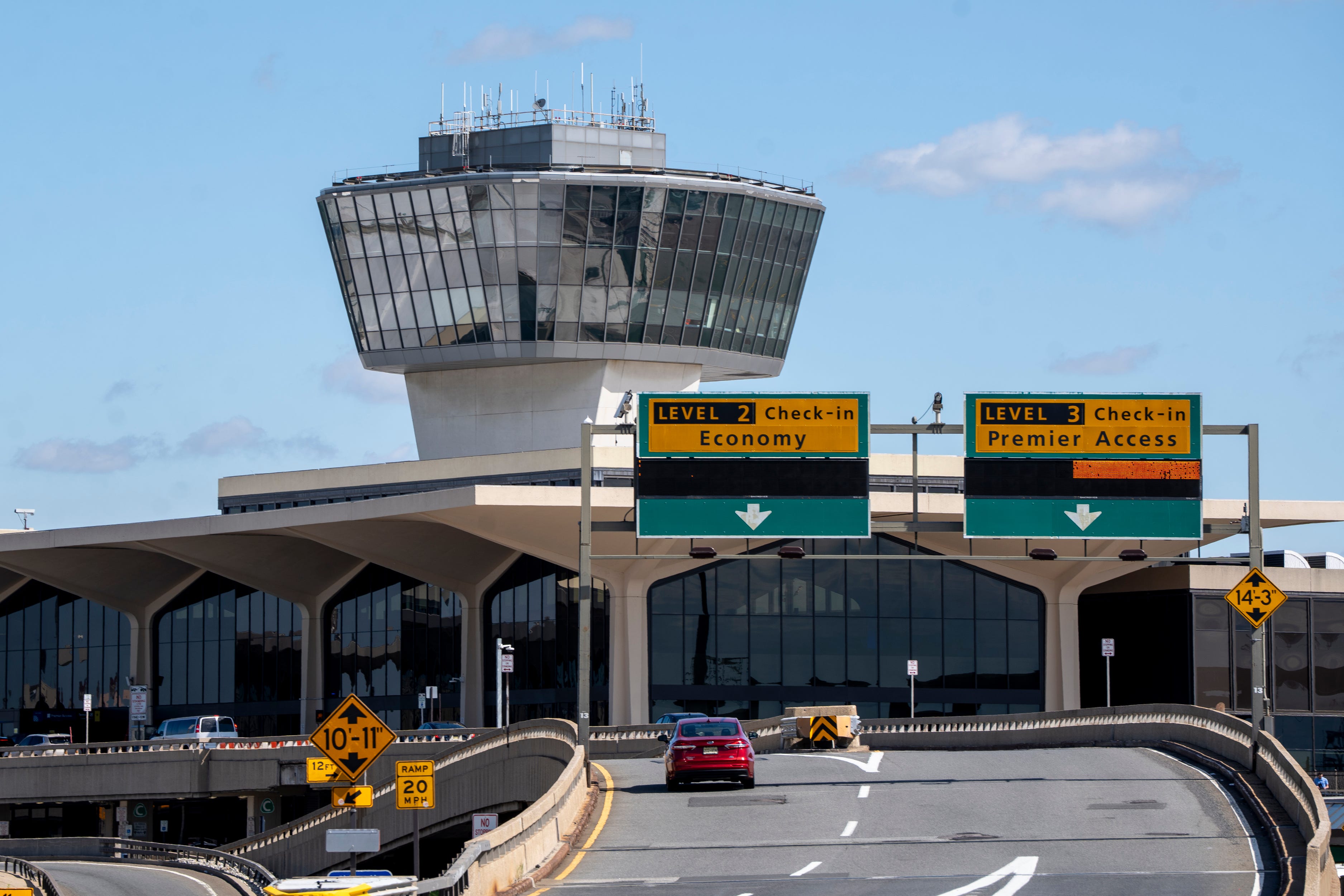Newark Airport Delays: Why Passengers Face More Chaos
Newark Airport Chaos: Are Delays Becoming the New Normal?
Introduction: Grounded Hopes at Newark Liberty
Let’s face it, nobody enjoys airport delays. They throw a wrench into travel plans, ratchet up stress levels, and generally turn what should be an exciting journey into a frustrating ordeal. And lately, it seems like Newark Liberty International Airport (EWR) has been battling more than its fair share of turbulence. Thursday was no exception, with passengers facing significant disruptions due to a combination of equipment issues and FAA staffing shortages. Are we entering a new era where lengthy hold-ups become the expected norm? Let's dive into what's happening and what it means for your travel plans.
The Thursday Debacle: A Timeline of Delays
Thursday morning started with a punch to the gut for travelers passing through EWR. The FAA reported staffing shortages that rippled across the airport's operations. This caused departing flights to be delayed by an average of 75 minutes. Arriving flights were even worse. They faced delays stretching for five hours, according to airport officials. The FAA's website ominously hinted at maximum delays potentially reaching a staggering 10 hours. Can you imagine being stuck in an airport for half a day?
The Port Authority's Response: Monitoring and Coordination
In the midst of this chaos, the Port Authority, responsible for managing Newark Airport, issued a statement. It said, "Newark Liberty International Airport is closely monitoring the situation and coordinating with airline partners, the FAA, and other stakeholders to support operations and assist impacted passengers." While this sounds reassuring, many passengers likely felt a sense of helplessness, wondering when their flights would finally take off.
Ground Delay Programs: A Temporary Solution?
Shortly after 11 a.m., the FAA implemented a ground delay program at Newark Airport. This tactic aims to manage air traffic by holding flights at their origin airports. This minimizes congestion in the air and on the ground at EWR. An earlier ground stop, a more drastic measure with the potential to halt flights altogether, was thankfully canceled. Are these ground delay programs effective in the long run, or are they simply a band-aid solution to a deeper problem?
FAA Staffing Shortages: The Root Cause
Understanding the FAA's Role
The Federal Aviation Administration (FAA) plays a crucial role in ensuring the safety and efficiency of air travel. They are responsible for air traffic control, navigation systems, and overall aviation oversight. Staffing shortages within the FAA can have a domino effect, impacting everything from flight schedules to passenger experience.
Why Are Staffing Shortages Occurring?
There are several factors contributing to these shortages. Increased air travel demand after the pandemic, coupled with retirements and a backlog in training new air traffic controllers, have created a perfect storm. Add to that the complex and demanding nature of the job, and it’s easy to see why the FAA is struggling to maintain adequate staffing levels. Is enough being done to address this critical issue?
Equipment Issues: Another Layer of Complexity
While staffing shortages are a significant contributor to delays, equipment issues also play a role. Outdated infrastructure, malfunctioning radar systems, and communication breakdowns can all contribute to air traffic disruptions. Just like an old car, airport equipment requires constant maintenance and upgrades to function optimally. Are our airports investing enough in modernizing their infrastructure?
The Passenger Experience: Frustration and Uncertainty
Let's not forget the human cost of these delays. Passengers are often left stranded, with little information and limited support. Missed connections, canceled meetings, and disrupted vacations are just some of the consequences. The lack of clear communication from airlines and airport authorities can further exacerbate the frustration and anxiety. Imagine being stuck in an airport with crying children and no end in sight – a traveler's nightmare!
Airline Responsibility: Communication and Compensation
Airlines have a responsibility to keep passengers informed about delays and provide assistance when things go wrong. This includes offering meal vouchers, accommodation, and rebooking options. However, navigating airline policies and claiming compensation can be a complex and frustrating process. Are airlines doing enough to prioritize passenger well-being during these disruptions?
Traveler Tips: Navigating Newark Airport Delays
Planning Ahead: Minimizing Risk
While you can't control airport delays, you can take steps to minimize their impact on your travel plans. Consider booking early morning flights, which are less likely to be affected by cascading delays. Allow ample connection time between flights, and monitor flight status updates regularly. Knowledge is power!
Packing Essentials: Staying Comfortable
If you anticipate potential delays, pack essentials such as snacks, water, and entertainment. A portable charger can be a lifesaver if you're stuck without access to power outlets. A comfortable neck pillow and blanket can also make a long wait more bearable. Think of it as preparing for a mini-camping trip – inside an airport!
Utilizing Airport Amenities: Making the Most of Your Time
Newark Airport offers a variety of amenities to help passengers pass the time, including restaurants, shops, and lounges. Take advantage of these resources to stay comfortable and entertained during delays. Many lounges offer complimentary food, drinks, and Wi-Fi, providing a welcome respite from the crowded terminals. After all, might as well make the most of a bad situation, right?
Long-Term Solutions: Addressing the Root Causes
Addressing the issues plaguing Newark Airport requires a multi-faceted approach. Increased investment in FAA staffing and training, modernization of airport infrastructure, and improved communication between airlines and passengers are all essential. A proactive, rather than reactive, approach is needed to prevent future disruptions.
The Future of Air Travel: Can We Expect More Delays?
The future of air travel remains uncertain. As demand continues to rise, and airports grapple with aging infrastructure and staffing challenges, delays may become more frequent. However, with strategic planning, technological innovation, and a commitment to passenger well-being, we can mitigate the impact of these disruptions and ensure a smoother travel experience. The sky's the limit – but let's hope our flights aren't!
Impact on the Local Economy: More Than Just Travel
Airport delays aren’t just a traveler’s headache. They ripple through the local economy, impacting businesses that rely on tourism and commerce. When flights are delayed, travelers spend less money at local restaurants, hotels, and shops. Extended delays can also disrupt supply chains, causing delays in the delivery of goods and services. A well-functioning airport is crucial for a thriving local economy. What are the long-term economic consequences of these recurring delays?
Conclusion: Navigating the New Reality
The recent delays at Newark Airport highlight the challenges facing the aviation industry. Staffing shortages and equipment issues are creating significant disruptions for passengers. While there are no easy solutions, proactive measures, improved communication, and a commitment to passenger well-being are essential. Until then, travelers should be prepared for potential delays and take steps to minimize their impact. So, pack your patience, download some entertainment, and hope for the best – because at Newark Airport, you might just need it.
Frequently Asked Questions (FAQs)
Here are some frequently asked questions about Newark Airport delays:
- Why are there so many delays at Newark Airport lately?
Delays are often caused by a combination of factors, including FAA staffing shortages, equipment issues, weather conditions, and increased air travel demand. - What can I do if my flight is delayed at Newark Airport?
First, stay informed by checking flight status updates regularly. Contact your airline for assistance with rebooking options, meal vouchers, or accommodation if necessary. Take advantage of airport amenities to stay comfortable and entertained during the delay. - Am I entitled to compensation if my flight is delayed at Newark Airport?
Your eligibility for compensation depends on the reason for the delay and your airline's policies. Some airlines offer compensation for delays caused by factors within their control, such as mechanical issues. Review your airline's terms and conditions for details. - How can I avoid delays when flying through Newark Airport?
Book early morning flights, allow ample connection time, monitor flight status updates, and pack essentials to stay comfortable during potential delays. Consider signing up for flight delay notifications to stay informed in real-time. - What is the Port Authority doing to address the delays at Newark Airport?
The Port Authority is working with airline partners, the FAA, and other stakeholders to support operations and assist impacted passengers. They are also investing in infrastructure improvements and exploring long-term solutions to address the underlying causes of delays.


